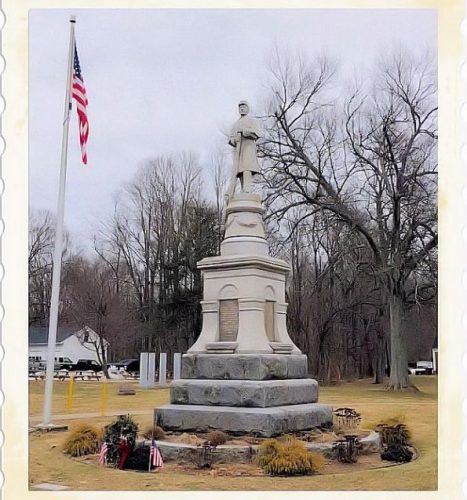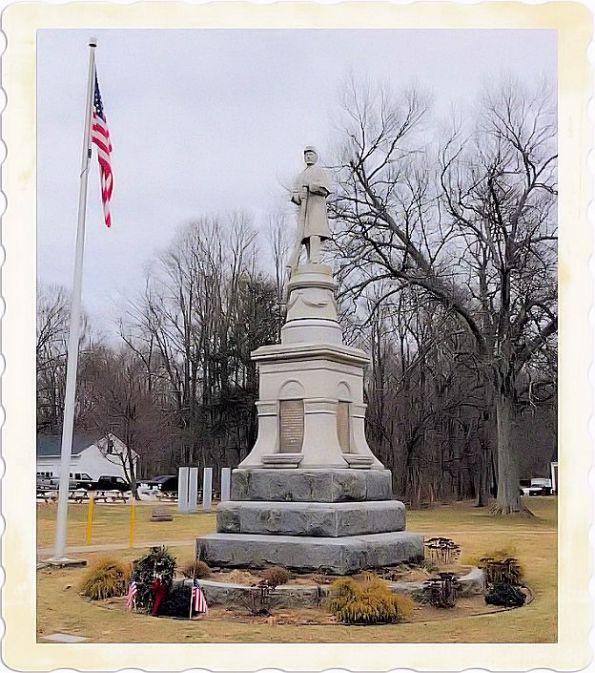
Memorial Day, legal holiday observed annually on the last Monday in May in the United States, in honor of the nation’s armed services personnel killed in wartime.
Happy Memorial Day! Thank you to all our service men and women past and present. You are not forgotten!
Without a sign his sword the brave man draws and asks no omen but his country’s cause.
Homer
The secret of happiness is freedom, the secret of freedom is courage.
Carrie Jones
Valor is stability, not of legs and arms, but of courage and the soul.
Michel de Montaigne
Our own heart, and not other men’s opinions, forms our true honor.
Samuel Taylor Coleridge
The cost of liberty is less than the price of repression.
W.E.B. DuBois
One lives in the hope of becoming a memory.
Antonio Porchia
All the great things are simple, and many can be expressed in a single word: freedom, justice, honor, duty, mercy, hope.
Winston Churchill
We must dare to be great; and we must realize that greatness is the fruit of toil and sacrifice and high courage.
Theodore Roosevelt
True heroism is remarkably sober, very undramatic. It is not the urge to surpass all others at whatever cost, but the urge to serve others at whatever cost.
Arthur Ashe
Think about the past and consider the sacrifices men and women in the military have made for us.
Gary G. Wetzel
We’d like to say thank you to all the veterans of the United States of America. Thank you for the cost you paid so we could live in freedom and safety. Thank you that we have the freedom to pursue happiness, we have freedom of speech, we have all the freedoms other people only dream of. And sorry that some of us take these freedoms for granted.
Memorial Day is about freedom given to us by the sacrifice of generations of soldiers. Wish a happy Memorial Day using some of these Memorial Day quotes. Send a message, or just say them personally.
While only one day of the year is dedicated solely to honoring our veterans, Americans must never forget the sacrifices that many of our fellow countrymen have made to defend our country and protect our freedoms.
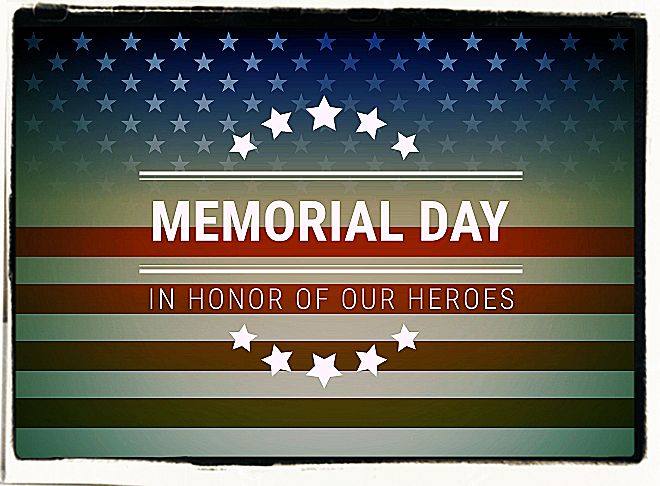
This Memorial Day should remind us of the greatness that past generations of Americans achieved from Valley Forge to Vietnam, and it should inspire us with the determination to keep America great and free by keeping America safe and strong in our own time, a time of unique destiny and opportunity for our Nation.
Freedom does not come without a price. We may sometimes take for granted the many liberties we enjoy in America, but they have all been earned through the ultimate sacrifice paid by so many of the members of our armed forces.
In the End, we will remember not the words of our enemies, but the silence of our friends.
Peace is the real and right memorial for those who have died in war.
I only regret that I have but one life to lose for my country.
As long as our nation is the home of the brave, it remains the land of the free. Happy Memorial Day!
Memorial Day, legal holiday observed annually on the last Monday in May in the United States, in honor of the nation’s armed services personnel killed in wartime. The holiday was originally called Decoration Day because it is a time for decorating graves with flowers and flags. Over time, the designation Memorial Day became far more common.
In the United States, local observances to honor the war dead became widespread following the American Civil War (1861-1865), which had taken more than 600,000 lives. These local observances inspired General John Alexander Logan, the leader of a Union veterans’ group called the Grand Army of the Republic (GAR), to issue a general’s order in 1868 designating May 30 as a day for “strewing with flowers, or otherwise decorating the graves of comrades who died in defense of their country during the late rebellion, and whose bodies now lie in almost every city, village, and hamlet churchyard in the land.” (By “the late rebellion,” Logan meant the Civil War, also known as the War of Rebellion.)
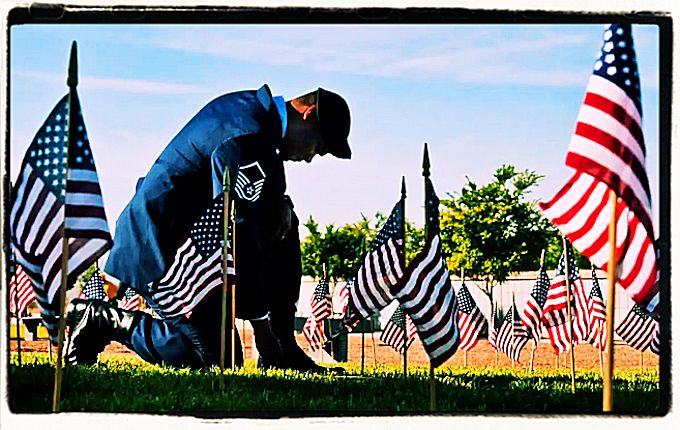
Accordingly, on May 30, 1868, several thousand people gathered to observe Decoration Day at Arlington National Cemetery, in Arlington, Virginia, across the Potomac River from Washington, D.C. The memorial ceremonies were presided over by Washington officials such as General Ulysses Grant and included a tribute by General James A. Garfield. Following the speeches, thousands of war veterans, orphans, and other participants helped decorate the more than 20,000 graves of Civil War dead in the cemetery.
A number of towns in the United States claim to have originated the custom of decorating graves in memorial of the Civil War dead, including Columbus, Mississippi; Macon, Georgia; Richmond, Virginia; Boalsburg, Pennsylvania; and Carbondale, Illinois. However, in 1966 President Lyndon B. Johnson signed a proclamation that declared Waterloo, New York, the birthplace of Memorial Day. Townspeople there had begun decorating graves of soldiers, flying flags at half-mast, and organizing parades of veterans 100 years earlier, in May 1866. Waterloo has continued this tradition every year.
In 1873 New York became the first state to declare a holiday on May 30. By the end of the 1800s, states throughout the nation had declared Memorial Day a holiday.
After World War I (1914-1918), Memorial Day observances were changed to honor the dead in all American wars, starting with the American Revolution. The U.S. Congress declared Memorial Day a national holiday in 1971, and changed the date of observance from May 30 to the last Monday in May to give workers a three-day weekend.
Memorial Day is marked by parades, speeches, and the decoration of graves. Traditionally, the president or vice president places a wreath on the Tomb of the Unknowns in Arlington National Cemetery, and small flags are placed on all the graves. Ceremonies also are held at Gettysburg National Military Park in Gettysburg, Pennsylvania, and at Antietam National Battlefield in Sharpsburg, Maryland. Many people choose to visit family graves on Memorial Day.
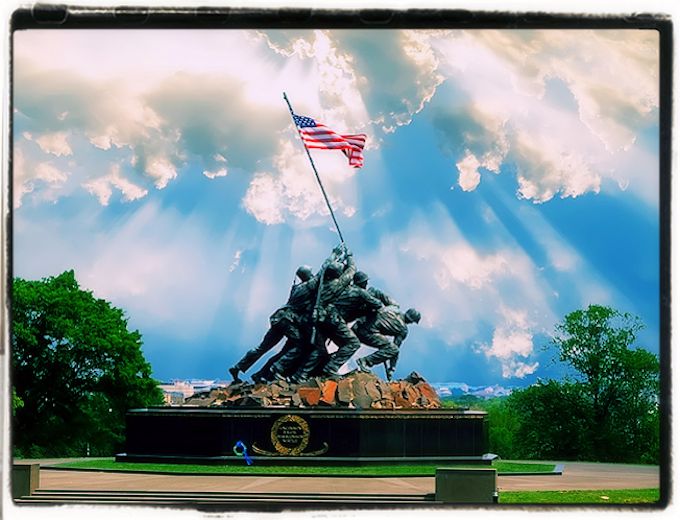
Many Southern states continue to honor the Confederate dead on a separate day. Confederate Memorial Day is observed on the fourth Monday in April in Alabama, the last Monday in April in Mississippi, April 26 in Georgia, May 10 in North Carolina and South Carolina, the last Monday in May in Virginia, and June 3 in Louisiana. Texas observes Confederate Heroes Day on January 19, the birthday of Confederate general Robert E. Lee. Tennessee observes Confederate Decoration Day on June 3, the birthday of Jefferson Davis, president of the Confederacy (see Confederate States of America).
The Memorial Day weekend marks the beginning of summer activities, such as picnics and trips to the beach. A well-known automobile race, the Indianapolis 500, is held in Indiana every year on Memorial Day weekend.
The weather is usually warm and sunny on the last Monday in May. Schools and offices are closed. Families and friends get together for picnics and baseball games. Beaches open for the summer season. Stores hold big sales. There are concerts and evening fireworks in parks.
That is the fun side of the American national holiday Memorial Day. But Americans celebrate the holiday in very different ways. There is another, serious side which has more to do with how it all began: with giving thanks to soldiers who died in wars. Some towns organise parades in which war veterans, boy and girl scouts, and school bands in uniforms march to the inspiring sounds of trumpets, flutes, and drums.
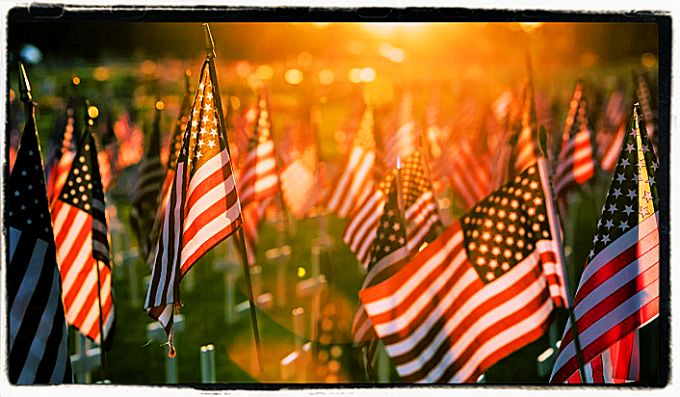
Patriotic citizens, especially, and those involved with the military, visit national cemeteries, where each soldier’s grave. As we said before the tradition of Memorial Day began shortly after the American Civil War (1861-1865). That bloody conflict ended in victory for the Northern, ‘Union’ states against eleven Southern, ‘Confederate’ states which had tried to break away from the USA and form a separate country. A major result was that slavery, the basis for the agricultural economy of the Southern states, was abolished. In 1865, former American slaves in South Carolina created a ceremony to honour Union soldiers who had died in the war.
Starting in 1868, Memorial Day was observed annually on May 30th in many parts of the US. After the First World War, Americans began to honour their countrymen who had died in all wars. In 1971, it was decided that Memorial Day should be celebrated nationwide on the last Monday in May, whatever the date, creating a three-day Memorial Day Weekend. Today many people say that change made it possible for people to have a mini-vacation. They think the government should restore the single-day holiday on May 30th. In that way, citizens wouldn’t only amuse themselves and forget the soldiers who died to defend freedoms that are central to the American way of life.
The vast majority of Americans agree that Memorial Day should be a time to give thanks to all men and women who died in military service. Yet many citizens, especially pacifists, now criticise what they see as the blind patriotism of some people on Memorial Day. They think that Memorial Day parades and ceremonies should not be used as propaganda for US participation in controversial wars across the world, such as in Iraq and in Afghanistan.
For almost 70 years, no Memorial Day parade was held in Washington DC. It is interesting that the tradition of the parade in the US capital was revived in 2005, during the presidency of the unpopular, self-declared “war president”, George W Bush.
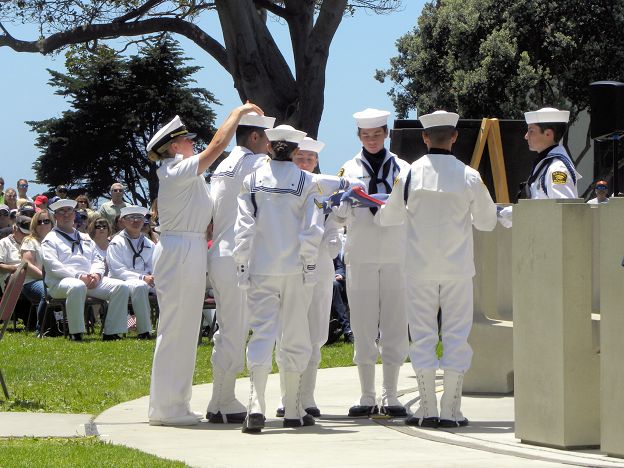
They say that summer in the United States begins at the end of May with Memorial Day Weekend. The whole country takes a holiday on Monday and enjoys a long weekend. But what exactly is Memorial Day? It is in honour of all the veterans who died serving their country and, in the current political climate, some people find the military nature of the holiday offensive. Edwin Rutledge served in the US Navy from 1958 to 1961, but today he is a pacifist and lives in Germany, where he runs” the Munich American Peace Committee.
In his own opinion there are certain societies in the States that are susceptible to the military aspect. For example, the Indians are very conscious – it’s strange, they’ve been treated not very well in the States – but they’re very proud to have served in the service. Other people have a little bit of difficulty with the idea of war, so they don’t particularly like to think that way. There are certain populations in the US, for example the Oriental population, mainly the Japanese population, that has trouble celebrating Memorial Day, after some of the problems that they faced being put into camps during the Second World War.
Here are the major U.S. holidays. In some cases, businesses, government offices, and schools will be closed, and also the International Days list.
New Year’s Eve/New Year’s Day
MLK Jr. Day
President’s Day
Valentine’s Day
St. Patrick’s Day
Easter/Spring Break
Mother’s Day
Memorial Day
Father’s Day
4th of July
Labor Day
Halloween
Thanksgiving
Christmas Eve
Christmas Day
International Days List

